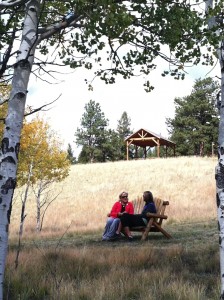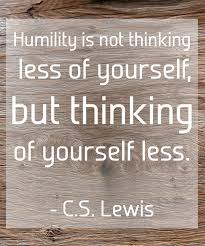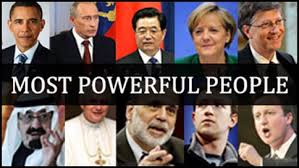 Blessed are the peacemakers: they shall be recognized as children of God.—Matthew 5:9 (New Jerusalem Bible)The long, arduous spiritual journey can be summed up this way: All of life—from beginning to end is to be marked by peace. Being at peace is truly a mark of authenticity for those that are on the journey to God. It has taken me many years, several positions in my work and some failed relationships to realize that peace and living at peace is our ultimate goal in life. Where there is no peace--there is no real life.As I look back on my life and through the decades of my journey, seeking peace was not on my list of priorities. I, like so many around me, sought power and control; affection and esteem and security and survival. Family, work and friendship became venues for me to seek what I thought I needed. I thought a position would give me peace. I now see that I was programmed by my culture to live a certain way and that by living in a certain way--I would eventually get what I was searching for in life. I was wrong. I though being liked and accepted would cultivate peace inside. I was wrong. I though finally arriving at a vocational position would offer me all that I really wanted. Again, I was wrong.In this beatitude--this statement of a healthy attitude about life, we again see Jesus defining for us the core truth we can embrace to bring us to experience peace.To think that the heart of God and the intentions of Jesus would be that I could experience peace—the great shalom of God—allows me to re-think everything in my life. That God would seriously desire for me to live at peace and to be at peace opens my heart to God in a deeper way.The Hebrew word for “shalom” means far more than mere peace. Shalom is about our well-being; a state of being that is not at struggle, conflict or discord with ourselves and with other people, institutions, systems or organizations.This kind of well being is cultivated in at least five main ways.
Blessed are the peacemakers: they shall be recognized as children of God.—Matthew 5:9 (New Jerusalem Bible)The long, arduous spiritual journey can be summed up this way: All of life—from beginning to end is to be marked by peace. Being at peace is truly a mark of authenticity for those that are on the journey to God. It has taken me many years, several positions in my work and some failed relationships to realize that peace and living at peace is our ultimate goal in life. Where there is no peace--there is no real life.As I look back on my life and through the decades of my journey, seeking peace was not on my list of priorities. I, like so many around me, sought power and control; affection and esteem and security and survival. Family, work and friendship became venues for me to seek what I thought I needed. I thought a position would give me peace. I now see that I was programmed by my culture to live a certain way and that by living in a certain way--I would eventually get what I was searching for in life. I was wrong. I though being liked and accepted would cultivate peace inside. I was wrong. I though finally arriving at a vocational position would offer me all that I really wanted. Again, I was wrong.In this beatitude--this statement of a healthy attitude about life, we again see Jesus defining for us the core truth we can embrace to bring us to experience peace.To think that the heart of God and the intentions of Jesus would be that I could experience peace—the great shalom of God—allows me to re-think everything in my life. That God would seriously desire for me to live at peace and to be at peace opens my heart to God in a deeper way.The Hebrew word for “shalom” means far more than mere peace. Shalom is about our well-being; a state of being that is not at struggle, conflict or discord with ourselves and with other people, institutions, systems or organizations.This kind of well being is cultivated in at least five main ways.
- Peace with our past. As we mature, we realize that we have collected bruises, nicks and wounds and each one of these is a part of our story—our narrative. But experiencing peace means that we do not have to be defined by our past or be a victim of our past. Experiencing peace in our past requires knowing the true story of our formation; forgiving those who wronged us and gaining the insight and strength to overcome parts of our story that could have swamped us or sunk us. As I work with people, I find that it is our past where most of us really need to do the work of being a peacemakers. Something has happened in our past that we seem to get over and we succumb to the power of a past that holds us in its grip rather than being transformed from our past.
- Peace with our body. Our bodies are the address of our soul. To survive, forget ahead and compete, we may discover that we have abused our bodies—and may not have honored them. To have peace with our bodies is to accept our physical limitations; to accept our DNA and propensity towards certain physical challenges. To realize that we are what we eat and for the body to be at peace, the body needs the things that will nourish it—not harm it. To be a peace with one's body is to live the healing we so deeply need. I am 18 months into a journey with this being core and central for me. My intentional work here is fascinating, motivating and filled with wonderful curiosity.
- Peace in our minds. Our minds seem to be the place of perpetual committee meetings where we hear old voices telling us; shouting at us and sometimes condemning us. Learning how to quiet the mind is a spiritual exercise that nearly every religion on earth addresses. Jesus described an inner room where we can go to intentionally say “no” to the voices that never seem to leave us alone. Voices that snarl their jeering, rejecting and condemning tones undermine our efforts to have inner peace. We learn, hopefully, how to shut the door to these voices and listen to the Voice that tells us who we really are and what our true identity is all about in life. This particular area is key in the work of caring for someone's soul. If our minds are not at peace--then we are not at peace.
- Peace in our relationships. The sum of all Christian Scripture is very clear here. We are to pursue peace in relationships. We are to engage in peaceful behaviors that move us from one position to another, more life-giving way to live. We move from competition to cooperation. We move from being divisive to be one that joins in the work and lives or others. We move from insisting on our own way and position to yielding to the perspective and insight of others. To move towards forgiveness--even when we have in fact been wronged is at the core of being at peace.
- Peace with God. All of life is about learning to live at peace with God. As we experience this peace—this marker of a true relationship with God—we realize that this key and most primary of all relationships is the one relationship that anchors all other relationships. To be at peace with God is to learn how to be at peace with others—even our enemies—even those who speak ill against us. To experience the peace of God on a daily--day to day basis is at the heart of a healthy relationship with God.
It’s far easier to list these main areas where we need to experience peace than to actually foster peace in each one. Yet, this really is our journey. Choose one of the above areas this coming week and see how by your attention and focus people, events and circumstances may come to mind that need your attention. In my most recent sabbatical, my attention was drawn to two particular people that I knew I needed to pursue; say some words that might bring healing and resolution. These people surfaced in my own heart after weeks and weeks of quiet, rest, pondering and wondering. During the closing days of my sabbatical, I went to each one and asked forgiveness--owned what I could and sought to bless them by telling them how important they were to me and how much I valued them. It helped. And to my great surprise, I believe they were helped by my peace-making actions.[tweetthis]Making peace and experiencing contentment in life is truly an Inside Job. Peace does not just happen.[/tweetthis] When we do our inner work, we are cultivating the peace we desire and want.When we live at peace and in peace—we discover who we really are. We gain a sense of our true identity as the children of God. Some people say, I have my mother’s eyes. Some say, you might look more like your father than your mother. To look like and to be a person of peace is to possess the highest hallmark of the spiritual life. For when we are at peace—we are truly in God’s presence.








